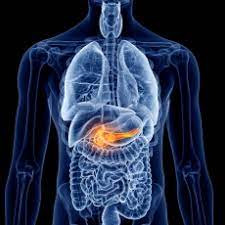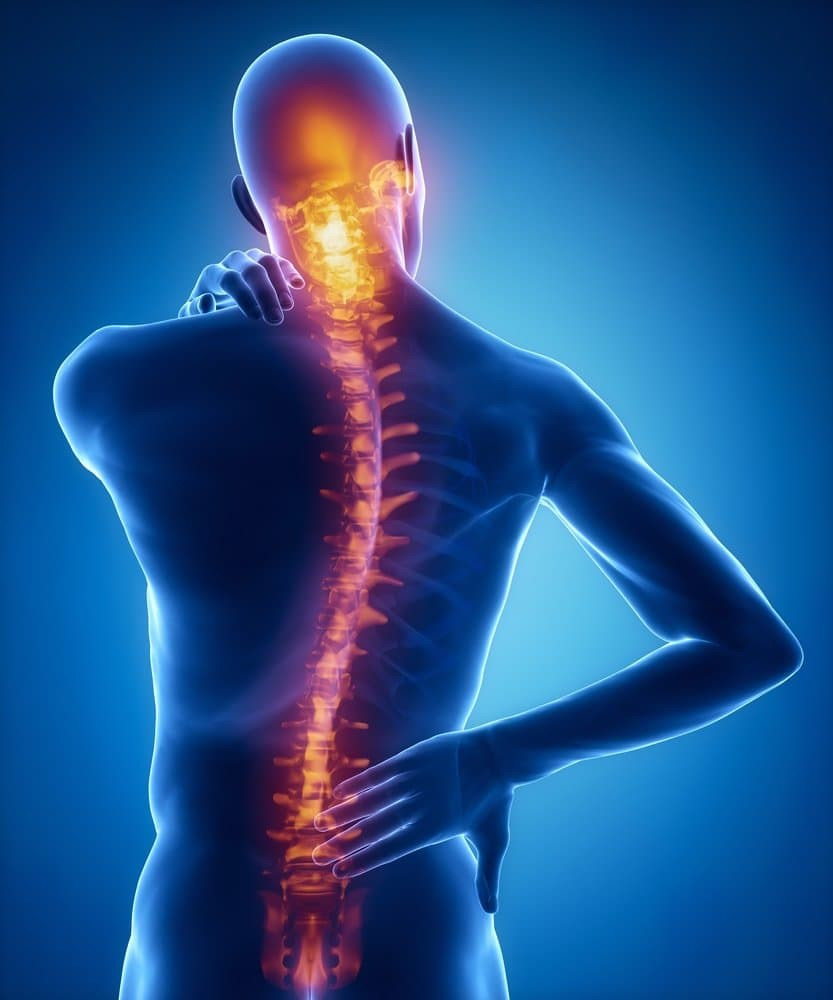Definition
Pancreatitis is the inflammation of the pancreas, a gland located behind the stomach. The pancreas plays a crucial role in producing enzymes for food digestion and hormones like insulin to regulate blood glucose levels. Pancreatitis affects between 5 and 80 individuals per 100,000 people.
Causes
The pancreas produces digestive enzymes that become active upon reaching the small intestine. However, in pancreatitis, these enzymes become prematurely active, leading to irritation and inflammation of pancreatic cells. The two most common causes of pancreatitis are:
- Gallstones can block the bile duct, the passageway for pancreatic enzymes to exit. This blockage prevents the enzymes from properly exiting and leads to the digestion of pancreatic cells.
- Excessive Alcohol Consumption: Excessive alcohol consumption can cause enzymes to accumulate in pancreatic cells and become active prematurely. Additionally, alcohol consumption increases the protein level in pancreatic juice, leading to protein sedimentation that obstructs the passage for juice expulsion.
Additional causes of pancreatitis include:
- History of Endoscopic Retrograde Cholangiopancreatography (ERCP): This procedure diagnoses and manages issues in the bile duct.
- Abdominal injuries. Trauma to the abdomen can trigger pancreatitis.
- Medications. Certain medications may contribute to the development of pancreatitis.
- Elevated levels of triglycerides in the blood (Hypertriglyceridemia). High triglyceride levels can be a risk factor.
- Elevated calcium levels in the blood (Hypercalcemia). Abnormally high calcium levels may be associated with pancreatitis.
- Pancreatic cancer. Cancer affecting the pancreas can lead to inflammation.
- Abdominal surgery. Surgical procedures in the abdominal region may be a risk factor.
- Cystic fibrosis. A genetic disorder that thickens digestive fluids, making them more prone to precipitate.
- Infections. Certain infections can contribute to the development of pancreatitis.
- Obesity. Being overweight or obese is a risk factor.
- Autoimmune conditions. Conditions where the immune system mistakenly attacks the body's cells.
- Pancreatitis cases where the cause cannot be precisely identified or idiopathic
Risk factor
Pancreatitis has several risk factors, including:
- Excessive Alcohol Consumption: Regularly consuming alcohol at a rate of 4-5 drinks per day for 5-15 consecutive years increases the risk of pancreatitis.
- Smoking: Active smokers have a three times higher risk of developing pancreatitis compared to non-smokers.
- Obesity
- Diabetes
- Family History
- Gender: Pancreatitis is generally more common in men than in women. Smoking is a more frequent cause in men, while in women, it may be associated with diseases of the bile duct.
- Age: Pancreatitis tends to occur more frequently in the age range of 30-40 years.
Symptoms
Pancreatitis can manifest as either acute or chronic. Acute pancreatitis is characterized by rapid onset and more noticeable symptoms, including:
- Upper abdominal pain. The pain radiates to the back.
- Abdominal tenderness: The abdomen is tender to touch.
- Fever. Elevated body temperature is common.
- Rapid Pulse. An increased heart rate may be observed.
- Nausea and vomiting. Gastrointestinal symptoms are common.
- Abdominal Pain. The abdominal pain is sudden, intensifies rapidly, and persists continuously for over a day.
- Pain relief position. Patients often find relief when sitting or bent over.
Meanwhile, chronic pancreatitis can be present with symptoms that are less severe than acute pancreatitis. Its symptoms include:
- Abdominal Pain. Worsens after eating.
- Unexplained Weight Loss. Without changes in diet.
- Foul-smelling Oily Stools (Steatorrhea).
Diagnosis
To diagnose pancreatitis, doctors may conduct several examinations following the primary impression:
- Direct Examination:
- Vital Signs: Blood pressure, pulse rate, respiratory rate, and temperature. Fever and an elevated pulse rate are common in people with pancreatitis.
- Abdominal Examination: To assess tenderness on palpation, muscle contraction reflex for abdominal protection reaction to pain, and bloating.
- Jaundice: If a gallstone blocks the passage.
- Laboratory Examination:
- Pancreatic Enzymes: These include amylase (which breaks down starch or sugar) and lipase (which breaks down lipids or fat).
- Liver Enzymes: To identify possible causes of pancreatitis, such as gallstones.
- Urea, Creatinine, and Blood Electrolytes: To detect problems in body fluid balance.
- Blood Glucose Levels: To assess pancreatic cell function in producing insulin.
- Calcium, Cholesterol, and Triglycerides: To identify causes and complications of pancreatitis.
- Complete Blood Test: To observe white blood cell count as a sign of inflammation and C-reactive protein (CRP) as another marker of inflammation. Blood gas levels may be checked if the patient experiences difficulty breathing.
- Imaging:
- Imaging is generally not needed for diagnosing pancreatitis but can be helpful in identifying dead pancreatic cells, typically through ultrasound (USG).
- Magnetic Resonance Cholangiopancreatography (MRCP): If endoscopic retrograde cholangiopancreatography (ERCP) is suspected of worsening inflammation, this may be conducted to determine treatment. ERCP is only performed if acute and severe pancreatitis is caused by gallstone blockage and if the patient's condition is worsening.
Management
In cases of acute pancreatitis, patients often present to the Emergency Department (ED) because of severe and persistent pain. The initial priority is to establish an intravenous line to ensure fluid requirements are met and to reduce the inflammatory response. If the patient is conscious and able, oral food intake may be considered; however, if not, a nasogastric or feeding tube may be required to ensure adequate nutrition. Painkillers are administered to alleviate pain resulting from inflammation.
Specialist intervention, such as Emergency Endoscopic Retrograde Cholangiopancreatography (ERCP), may be necessary if pancreatitis is accompanied by cholangitis (bile duct inflammation). This procedure aims to remove gallstones if present. Surgery may be recommended to remove the gallbladder if it is filled with stones.
When acute pancreatitis is attributed to hypertriglyceridemia, insulin and cholesterol medications may be prescribed to alleviate symptoms. Antibiotics are typically administered only if there is an underlying infection.
For chronic pancreatitis, treatment involves pain management, counseling to cease smoking and limit alcohol consumption, and the replacement of pancreatic enzymes. Patients are often advised to follow a low-fat diet in small portions. Further control measures may be recommended by the doctor based on the patient's condition to determine if additional treatment is necessary.
Complications
Complications of pancreatitis may include:
- Kidney failure. Due to electrolyte and fluid disturbances.
- Breathing problems. Chemical changes affecting breathing or reducing oxygen levels.
- Pancreas infection pseudocyst formation. Pseudocysts may form in the pancreas and burst, leading to complications such as bleeding and infection.
- Malnutrition. Reduced production of enzymes for digesting food, leading to malnutrition.
- Diabetes. Damage to insulin-producing cells, potentially resulting in diabetes.
- Pancreatic cancer. Long-term chronic pancreatitis may increase the risk of developing pancreatic cancer.
Prevention
Pancreatitis can be prevented by taking measures such as reducing alcohol consumption and quitting smoking. Preventing the initial occurrence of pancreatitis can be challenging, but for individuals who have previously experienced it, avoiding known triggers can help prevent future episodes. If gallstones are identified as the cause, their removal can be beneficial. In cases where alcohol is a contributing factor, regular counseling with a doctor, psychologist, or addiction counselor can help individuals reduce their alcohol dependence.
When to see a doctor?
If you or someone around you experiences sudden and persistent abdominal pain, it is crucial to consult a doctor promptly. If the pain is severe and makes it difficult for the affected person to find a comfortable position, it is advisable to seek immediate medical attention by going to the nearest Emergency Department (ED) for further evaluation and treatment.
Looking for more information about other diseases? Click here!
- dr Nadia Opmalina
Mohy-ud-din, N., & Morrissey, S. (2021). Pancreatitis. Retrieved 7 January 2022, from https://www.ncbi.nlm.nih.gov/books/NBK538337/
Pancreatitis - Symptoms and causes. (2021). Retrieved 7 January 2022, from https://www.mayoclinic.org/diseases-conditions/pancreatitis/symptoms-causes/syc-20360227
Tang, J. (2021). Acute Pancreatitis: Practice Essentials, Background, Pathophysiology. Retrieved 7 January 2022, from https://emedicine.medscape.com/article/181364-overview









